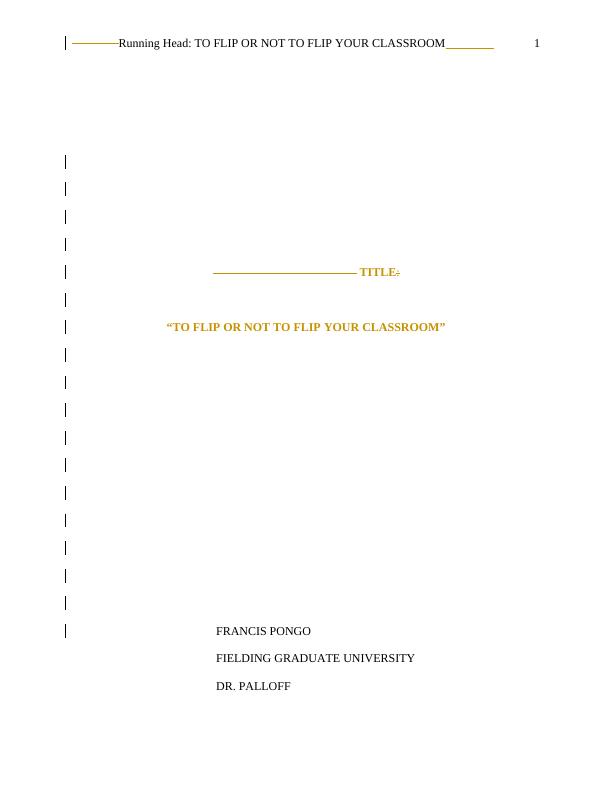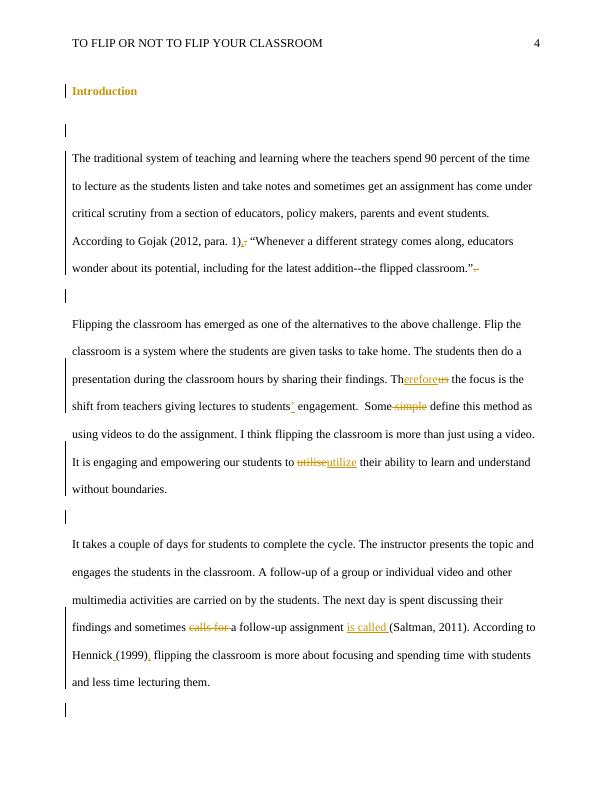Ask a question from expert
Traditional System of Teaching and Learning
14 Pages2469 Words568 Views
Added on 2019-09-16
Traditional System of Teaching and Learning
Added on 2019-09-16
BookmarkShareRelated Documents
End of preview
Want to access all the pages? Upload your documents or become a member.
The Traditional System of Teaching and Learning
|12
|2434
|573
Traditional System of Teaching and Learning: Assignment
|14
|2469
|484
Technology is revolutionizing the teaching
|4
|962
|29
Flipped Learning in Singapore
|18
|4594
|460
(PDF) Functional analysis of organizational designs
|19
|4396
|243
Teaching Methodologies for A Field Trip
|8
|1929
|265



